Guantanamera – A Song of Liberty and Love
Guantanamera – A Song of Liberty and Love
Guajira is a musical form which evokes a rural ambience in its texts, instrumentation and style. In the years around 1900 a style of guajira emerged in association with Cuban music theater. The music is a mixture of 3/4 and 6/8 rhythms. According to Sánchez de Fuentes, its first section is in a minor key, its second section in a major key.
Guantanamera
In general, the songs in this repertoire are no longer well known in Cuba. Hence, for most Cubans, "guajira" connotes a quite different genre that emerged in the 1930s, as a sort of fusion of the "son" and the guajira, the "guajira-son," in 4/4 time. It resembled the son in rhythm, but presented a rural ethos by foregrounding the guitar (or tres) more than horns, percussion, or piano.
“Guantanamera (Guajira Guantanamera)” is a song of Guantánamo. Guantánamo is the name of a province and a town at the east end of the island of Cuba.

Guantanamo, downtown
Guantanamera, in the form, is a guajira-son. The song is one of Cuba’s most famous songs, and is hailed as being their greatest patriotic piece.
The music, often erroneously called “traditional” was in fact composed by one Joseíto Fernández Diaz (1908 to 1979), who used it on his radio show, improvising comments on daily events in the song, the structure of which lent itself to such a use.
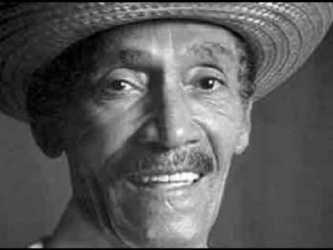
Joseito Fernandez
Originally the lyrics written to the music by Fernández referred to a young woman from Guantanamo, with whom he either had or wanted to have a relationship. The history is a little vague on this.
What is not vague is that Cuban composer Julián Orbón (1925 to 1991), who studied under Aaron Copeland at Tanglewood in 1946, adapted words from the first poem, "Yo soy un hombre sincero", in the 1899 collection Versos Sencillos by famed Cuban poet José Julián Martí Pérez (usually known simply as José Martí) into the song.
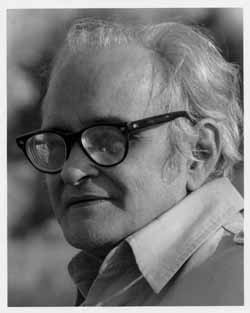
Julián Orbón
One of Orbón's students, Hector Angulo, introduced the song to Pete Seeger, at a summer camp in the Catskills. While Seeger is modest about his role, he was, in fact, the catalyst for Marti's fame through song around the world.
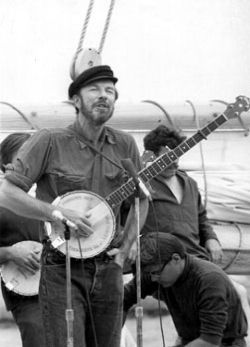
Pete Seeger
One of the huge reasons for the success of "Guantanamera" is its very simple musical structure. This has allowed it, over the years, to be used for any number of verses, some improvised, some prepared ahead of time. As a result, the song could be used for political purposes quite easily, with a catchy melody to help the refrain and message sink in to the listeners’ minds.
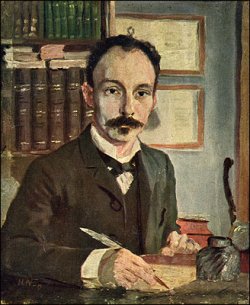
Jose Marti
Fernández's first use of the song was precisely this; he would comment on daily events on his radio program by adapting them to the song's melody, and then using the song as a show closer. Through this use, "Guantanamera" became a popular vehicle for romantic, patriotic, humorous, or social commentary lyrics, in Cuba and elsewhere in the Spanish speaking world.
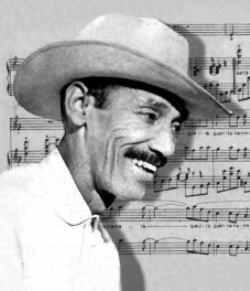
Jose Fernandez
Spanish lyrics:
Yo soy un hombre sincero De donde crecen las palmas Yo soy un hombre sincero De donde crecen las palmas Y antes de morirme quiero Echar mis versos del alma Chorus: Guantanamera Guajira Guantanamera Guantanamera Guajira Guantanamera Mi verso es de un verde claro Y de un carmin encendido Mi verso es de un verde claro Y de un carmin encendido Mi verso es un ciervo herido Que busca en el monte amparo I am a truthful man from this land of palm trees Before dying I want to share these poems of my soul My verses are light green But they are also flaming red (the next verse says,) I cultivate a rose in June and in January For the sincere friend who gives me his hand And for the cruel one who would tear out this heart with which I live I do not cultivate thistles nor nettles I cultivate a white rose Cultivo la rosa blanca En junio como en enero Qultivo la rosa blanca En junio como en enero Para el amigo sincero Que me da su mano franca Y para el cruel que me arranca El corazon con que vivo Y para el cruel que me arranca El corazon con que vivo Cardo ni ortiga cultivo Cultivo la rosa blanca Con los pobres de la tierra Quiero yo mi suerte echar Con los pobres de la tierra Quiero yo mi suerte echar El arroyo de la sierra Me complace mas que el mar
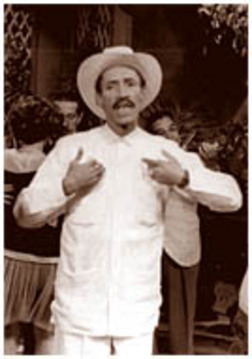
Jose Fernandez
Guantanamera in English
I am a truthful man From where the palm tree grows And before dying I want To let out the verses of my soul My verse is light green And it is flaming red My verse is a wounded stag Who seeks refuge on the mountain I grow a white rose In July just as in January For the honest friend Who gives me his open hand With the poor people of the earth I want to cast my lot The brook of the mountains Gives me more pleasure than the sea
Last Updated (Saturday, 21 March 2015 14:38)








